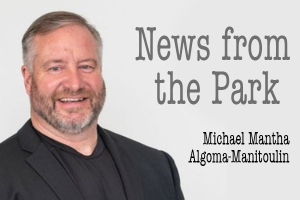 Most of us, at one time or another, have found ourselves in a situation that we thought was undoubtedly improbable or maybe one we could never even imagine. Right now, I feel like I am in one of those surreal moments that I could not have imagined ten years ago, and if asked, I’d have said it was highly improbable.
Most of us, at one time or another, have found ourselves in a situation that we thought was undoubtedly improbable or maybe one we could never even imagine. Right now, I feel like I am in one of those surreal moments that I could not have imagined ten years ago, and if asked, I’d have said it was highly improbable.
Yet, here I am, a Member of the Provincial Parliament, having to challenge a government that seems bent on trodding on the principles of democracy. I keep getting the urge to pinch myself to see if this is all real.
In November 2022, the Ford government passed Bill 3, the Strong Mayors, Building Homes Act and Bill 39, The Better Municipal Governance Act. Premier Ford introduced the acts as part of the government’s plan to tackle Ontario’s long-time and expanding housing problems. Analysts say that Ontario doesn’t have enough homes to accommodate our current population, let alone our future population, which continues to grow as we welcome newcomers to our nation. The housing shortage has caused housing costs and rents to spiral out of control.
Readers of this column will recall two weeks ago, I wrote about how democracy is intended to work. My point was that a democratic government’s success in meeting the needs of the people is relative to the degree to which citizens are involved. Encouraging citizens to get involved and share their views gives elected leaders direction on governing. This is how we can ensure that our governments truly act in citizens’ best interests. This is key to democratic governance.
For those who believe in democratic government, the issue regarding Bills 3 and 39 is that they make it possible for a mayor to make sweeping changes with the support of only one-third of a municipal council. Changes not only in housing decisions but also in a slew of others:
- Choosing to appoint the municipality’s chief administrative officer (CAO)
- At the mayor’s discretion, reorganize municipal departments and selectively hiring municipal department heads
- At the mayor’s discretion, creating and organizing council committees and appointing the chairs and vice chairs
- Proposing the municipal budget
- Raising matters with council as well as the power to veto by-laws if they believe that all or part of the by-law might interfere with a provincial priority
In effect, Bills 3 and 39 set a terrible precedent allowing a minority to force issues to which the majority of elected leaders object. This, ladies and gentlemen, is not democratic rule, no matter how you want to twist it or justify it.
What concerns me is how did Ontario, with a proud democratic conscience and history, end up seemingly endorsing an elected government that is bent on trodding on the principles of democracy. As I said above, I constantly have to pinch myself to see if this is all real.
Premier Ford is a wily politician. He was cagey in keeping the roar of opposition subdued by implementing the strong mayors’ legislation in parts. First, Mr. Ford took the bill for a test drive by bestowing the “superpowers” on the mayors of Toronto and Ottawa by passing Bill 39 to set them up as the ‘elitist’ group. Then, after making a couple of loops, he added a divide-and-conquer element by inviting only a select group of 26 more mayors to join the mayoral ‘superpower’ club. Again, he controls the roar of the people by dividing them. And then, once the rest of the province sees the power neighbouring municipalities wield, the Premier could bestow superpower status on all cities.
In the December 16th, 2022, issue of Policy Options, Zack Taylor and Marton Horak wrote that to avoid backlash from Ontarians, “the Ontario government appears to be transferring political responsibility for the housing crisis to big-city mayors. If affordable housing does not materialize in strong-mayor cities, the province can blame the mayors.”
Thus, Premier Ford will set it all up so that a minority of municipal leaders rule the majority of people and leaders. This is not democratic, no matter how you want to shake it up. And if Ontarians are unhappy, they will blame the municipal leaders while the Premier and his government walk away white-glove clean. The situation brings the story of Tom Sawyer and the picket fence to mind. But if Aunt Polly was unhappy with the completed job, Tom could hold up pain-free hands and point to those he conned into doing the dirty work.
Understandably we Northerners might readily dismiss the above issue as something that pertains only to larger communities in Sothern Ontario. However, to do so would be a mistake. Yes, he did introduce the concept to Ontario’s prominent cities – Toronto and Ottawa. But recently, he enticed 26 more communities to join the club. There is no doubt many more cities not included this time will follow suit soon. Ultimately, it will be a fait accompli, and the legislation will apply to all cities, towns, and municipalities, even here in Algoma-Manitoulin. After all, the money to be made developing and expanding smaller communities is just as good as that from larger ones.
When I first ran for office in 2011, it never dawned on me that I would ever be put into the position of having to fight our government for fundamental democracy. I’m going to be black and blue by the fall, pinching myself to remember this is real.
As always, please feel free to contact my office about these issues or any other provincial matters. You can reach my constituency office by email at my new address, [email protected] or by phone Toll-free at 1-800-831-1899.
- MPP Mantha seeks update on Northern Health Travel Grant - November 27, 2024
- Fixing the housing crisis is not easy work, but it’sa job we can’t afford to put off any longer - June 17, 2024
- Résoudre la crise du logement n’est pas un travailfacile, mais c’est un travail que nous ne pouvonspas nous permettre de reporter plus longtemps - June 17, 2024
 Wawa-news.com Local and Regional News
Wawa-news.com Local and Regional News
